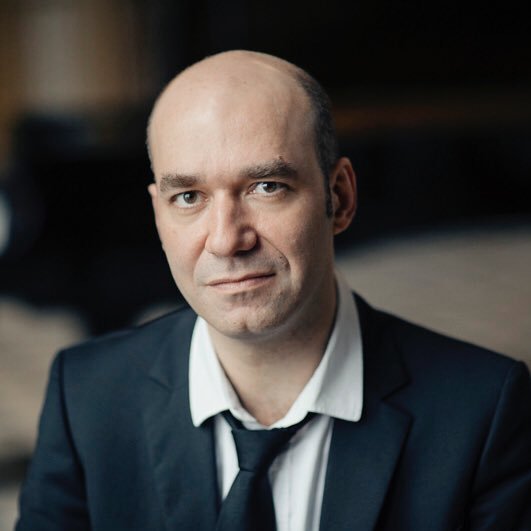
Classic, not overdone: Philippe Jaroussky and Jérôme Ducros at Wigmore Hall
ReviewI always feel a sense of comfort when I step into the theatre at Wigmore Hall. The lofty hall with its grand yet understated gilded art nouveau cupola warmly beckon to the listener, welcoming us into the space. For over a century, Wigmore Hall has stood as one of the world’s leading centres for chamber and vocal music and a song recital in the hall is a veritable rite of passage for any performer.
I make my way to my seat through a crowd that is humming with anticipation. We are here to listen to countertenor Philippe Jaroussky and pianist Jérôme Ducros perform a recital of Schubert song. Jaroussky, who has garnered somewhat of a cult-like following over the years and who has primarily made a name for himself in the realm of 18th-century music, is making a foray into German lieder, much to the curiosity and speculation of the audience.
Despite the fact that the programme lacked a thematic through-line, it felt cohesive, sensibly paced, and flowed well.
The Schubert-song recital is a staple and one that I find, for the most part, to be overdone. There is no denying the composer’s immense and invaluable contribution to the lieder repertory. His songs are like golden threads in the intricate tapestry that is the history of German lieder, but personally, I find that a recital programme of unrelated Schubert song to be lacking in imagination when there is a wide variety of song repertoire to be programmed in interesting and new ways.
However, these are classic songs that audiences will continue to come back to. And despite the fact that the programme lacked a thematic through-line, it felt cohesive, sensibly paced, and flowed well. This was aided in part by the two solo piano pieces that broke up each half of the programme. Durocs performed the Klavierstück in E flat No. 2 as well as the Impromptu in G Flat No. 3 both with incredibly transfixing clarity and precision. Ducros’ playing throughout was a highlight. Not only was he a sensitive partner for Jaroussky’s vocal lines, but an inestimable voice in his own right creating depth and meaning from the music of these pieces.
He was able to create an extraordinary atmosphere of intimacy.
Jaroussky is a highly sensitive performer whose interpretations of these classics were impassioned and affecting. He has a very rare instrument that he has the ability to manipulate with seeming ease. He is a very intuitive performer, driven more by the feel of the notes within the harmonies than the words themselves or storytelling and in this way, is very communicative; creating meaning that is born of the music itself.

Naturally, some of the pieces sat better with him than others - particularly the slower, more intimate ones in which he had the opportunity to display his ability to sustain on a pianissimo in the upper part of his range. It was in these quiet moments in pieces such as “Du bist die Ruh” and “Nacht und Träume”, that he was able to create an extraordinary atmosphere of intimacy. It takes a considerable amount of confidence and self-knowledge to be able to take extreme risks like this with the voice; to experiment with colour in such an extreme way, and have it pay off. This may not be the repertoire typically performed by his voice type, but Jaroussky has more than proven his ability within this genre and moreover, along with Ducros, gave a performance that was an undeniable reminder of the importance and timelessness of these beloved songs.


Comments